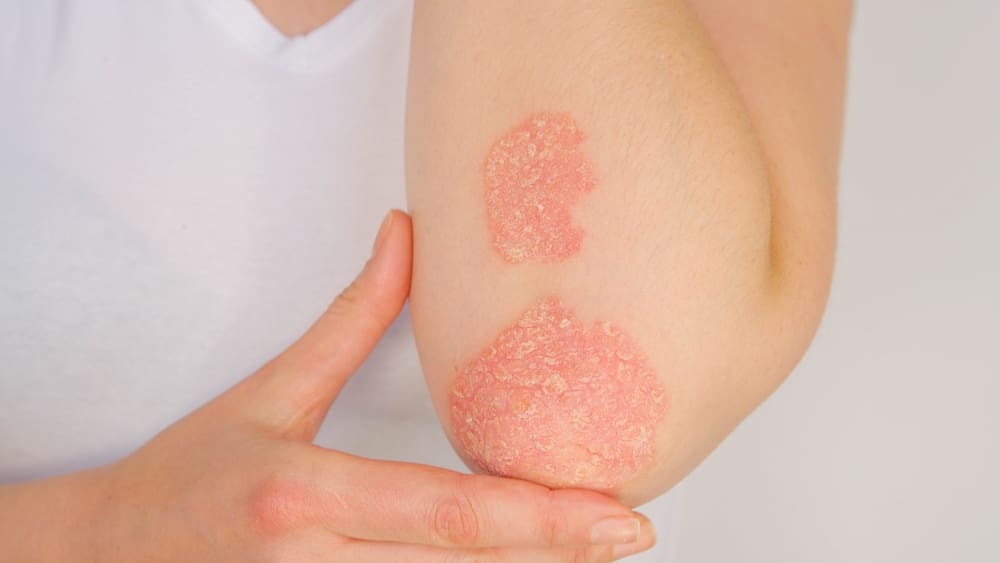Although they are one of the leading causes of death and disability in the United States, autoimmune diseases have not gotten the attention they deserve. If you catch an autoimmune disease early enough, its progression can be massively slowed down. In some cases, the condition may even be reversed! We’ve compiled important information on autoimmune diseases and symptoms, as well as background, diagnosis details, and treatment options.
Figures Show Autoimmune Diseases Are Common
According to the American Autoimmune Related Diseases Association (AARDA), there are over 100 types of autoimmune diseases. Although the National Institutes of Health estimates that around 23.5 million Americans experience at least one autoimmune disorder, in reality, that number could be much higher.
That figure only takes into account 24 of the 100 diseases. AARDA believes that the true figure is closer to 50 million. If these figures are true, they would be the 3rd leading cause of chronic illness, behind heart disease and cancer.
What Is an Autoimmune Disease?

Your immune system (comprised of special cells, proteins, tissues, and organs) is your body’s first line of defense against foreign invaders. When harmful bacteria and viruses enter your body, your immune system responds to the intruders by sending out an “army” of white blood cells to protect you.
Most of the time, your body knows which cells are yours and which are not. Sometimes, however, your body’s immune response is wrong. In the case of an autoimmune disease, your defense system turns on you. Instead of protecting against foreign cells, your immune system attacks your normal cells by mistake.
In an autoimmune disease, your body attacks your cells, tissues, and organs with autoantibodies. This can happen anywhere in the body. Autoantibodies can be organ-specific, like in the case of type 1 diabetes, where only the pancreas is affected. They can also be non-organ specific and attack the whole body, as demonstrated by rheumatoid arthritis.
Examples of Autoimmune Conditions
For an unknown reason, these diseases affect more women than men. In fact, the prevalence of autoimmune conditions among women is roughly double that of men. It’s estimated that 6.4% of females have at least one autoimmune disease, while only 2.7% of males can say the same. Some conditions include:
- Rheumatoid arthritis (RA)
- Multiple sclerosis (MS)
- Graves’ disease
- Systemic Lupus Erythematosus (SLE)
- Celiac disease
- Myasthenia Gravis
- Psoriasis
If you want a full list of conditions, click here.
What Causes Autoimmune Diseases?
There is no official consensus for the cause of autoimmune diseases, although many theories are floated around. Possible causes include:
- Age: Many women and girls develop one in their childbearing years (ages 15-44). However, this varies by condition.
- Genetics and family history: Some, but not all, conditions run in families, including lupus and MS.
- Environment: Exposure to sunlight (UV radiation), chemical solvents, mercury, viral and bacterial infections may trigger an autoimmune response. For example, sunlight is thought to be a risk factor for juvenile dermatomyositis. Additionally, childhood poverty has been linked to rheumatoid arthritis.
- Stress: A recent observational study compared 100,000 people with stress-related disorders with 126,000 of their siblings and 1 million people who did not have a stress disease. It found that those with stress-related disorders were more likely to develop one.
- Weight: Obesity may be a trigger, including for Crohn’s Disease and MS.
- Smoking: Smoking has been linked to a number of autoimmune diseases, including Graves’ and lupus.
- Western diet: A diet consisting of high-fat, high-sugar, and highly processed food can increase inflammation, possibly setting off an immune response.
- Hygiene theory: A 2015 study posited that reduced exposure to infectious agents causes the immune system to overreact when it comes into contact with unfamiliar microorganisms.
In reality, autoimmune diseases probably occur as a result of a mixture of these theories.
Autoimmune Diseases and Symptoms
Because there are so many varieties of autoimmune diseases, symptoms will range depending on the illness. Oftentimes, many symptoms are consistent with the pains of life and may not warrant any attention at first. Many doctors may even mistake the warning signs of autoimmune diseases for depression, viral infection, or everyday stress. In general, common symptoms include:
- Fatigue and brain fog
- Joint pain, swelling, muscle weakness, and achy muscles
- Skin rashes, swelling, and redness
- Abdominal pain, digestive issues, and bowel changes
- Low-grade recurring fever
- Unexplained weight loss or weight gain
- Numbness and tingling in hands and feet


Symptoms may come in cyclical patterns. Sometimes, they may go into remission, but other times, especially for conditions like psoriasis and RA, flare-ups may occur. These are often in response to triggers like sunlight and stress.
Many patients may not believe their symptoms are severe enough to go to the doctor. But if you notice any of these symptoms, especially over a prolonged period of time, you should consider seeing a doctor.
Getting a Diagnosis for Your Condition
Currently, most people receive a diagnose when it is too late to reverse the symptoms of their condition. They may not receive the news from their doctor until a later stage of the disease when symptoms are more severe and visible. One figure even estimated that it takes an average of 5-6 doctors and 5 years to get a proper diagnosis!
If you believe you may have a condition, but your doctor is shutting you down, don’t just stop at one opinion. Make sure to get a second, third, or even fourth opinion. Also, you should consider seeing a specialist, such as a rheumatologist, gastroenterologist, endocrinologists or dermatologist, if your major symptom affects a specific area of the body.
In order to receive a diagnosis, your doctor will give you a combination of tests. They will ask about your symptoms and family history, give you a physical exam, and perform lab tests. It may help if you come prepared with a full family history and list of symptoms, even if they appear minor.
Additionally, your doctor may carry out blood tests and tissue biopsies. An antinuclear antibody test (ANA) is one of the first tests your doctor may run. It can help confirm the presence of an autoimmune disease, but won’t specify which one.
Now that we have some background on autoimmune diseases, let’s look more closely at some of the more common conditions.
Treatment Options for Autoimmune Conditions
Unfortunately, there isn’t a cure for autoimmune diseases. Instead, most treatment options try to control your immune response, reduce pain, and lower inflammation. We’ll break treatment options down in medications and lifestyle changes.
Autoimmune Disease Medications
Medications range from over the counter (OTC) items to more intense options.
Non-steroidal anti-inflammatory drugs (NSAIDs) can help reduce the inflammation and pain that is caused by your immune system attacking your cells.
OTC NSAIDs include:
- Ibuprofen
- Aspirin
- Naproxen Sodium
Prescription NSAIDs include:
- Naproxen
- Nabumetone
- Diclofenac
In addition, paracetamol and codeine can help to treat pain.
Another type of medication that is commonly used is immunosuppressant drugs. These medications suppress the strength of your immune system and work to inhibit immune system activity. These include:
- Corticosteroid pills, creams, and injections can help decrease inflammation and reduce immune system activity. They may be used to treat an acute flare in symptoms. Examples include cortisone, prednisone, and methylprednisolone
- Janus kinase inhibitors
- Calcineurin inhibitors
- Biologics
In severe cases, you may have to consider surgery.
Lifestyle Changes
In addition to medication, many doctors advocate for lifestyle changes when it comes to treating autoimmune diseases. For instance, you may want to consider:
- Changing your food habits: Stay away from foods that cause inflammation. Many fast foods and processed items will only make your symptoms work. Additionally, try to work in healthy and well-balanced meals into your diet.
- Exercise: You don’t have to engage in physically challenging exercises. Instead, stick to gentle programs like yoga and tai chi.
- Get a good night’s rest: This is easier said than done. Sometimes, even if we get a full eight hours, we still feel tired in the morning. However, there are ways you can promote sleep hygiene and get better rest.
- Reduce stress: Stress can be a major trigger for many autoimmune diseases. Finding a way to reduce daily stressors can only help your health.
What autoimmune condition have you had to deal with?
Share your story in the comments section.
What topics related to autoimmune diseases and symptoms would you like to see us research?
Email us at info@painresource.com with your ideas!
Are you on Facebook?
Join our online community by clicking here.





I have had ITP twice and was infused with petosin on both occasions. I had rashes that started months after treatment. Only during the night and I know I would itch and it would disappear. Just wondering if it could have been an autoimmune rash. It lasted about 6 weeks and then stopped.
guillain barre syndrome – is that a reason to suspect rashes?